When War Turns Sisters into Mothers
In 2006, an Iraqi family went on vacation to Syria to visit relatives from Europe. While they were there, news broke that the chaos in Iraq was escalating—sectarian violence and insecurity had increased. The family made a difficult decision: 22-year-old Nawras and her 15-year-old brother, Mustafa, would stay behind in Damascus, while the rest of the family returned to Iraq. Nawras, once a sheltered daughter who barely knew how to navigate the streets on her own, suddenly became the primary guardian to her teenage brother in an unfamiliar country. Now, eighteen years later, the siblings look back on those challenging years and reflect on how the experience reshaped their lives.
‘We Were Spoilt’
Safety and privilege marked Nawras and Mustafa’s childhood. They were insulated from the harshness of life in Baghdad, Iraq’s capital. Their mother is a professor of microbiology at the University of Baghdad. Their father worked as a veterinarian, with a leadership role in the country's Ministry of Agriculture. "We were spoilt," Nawras admits with a wistful smile. "I had a driver take me to school because it was too dangerous to go alone. I didn’t even know how to cross the street by myself."
Mustafa’s memories of childhood take him back to the Seventh of July settlement. He recalls that Japanese engineers had built the neighbourhood. It was a place where children played in the streets and neighbours looked out for one another. His eyes light up when he mentions Christina, a neighbour. She fed him sandwiches after school while he waited for his parents to return from work. "I was an energetic kid, and I got into a lot of trouble," he says, grinning.
Despite food shortages and threats of US invasion, the family was stable. Their parents could provide for them. They also had an extended family outside Iraq that was keen on supporting them wherever there was a need. “We didn’t know anything about the impoverished people or the wealthy ones. We were in the middle, and we were comfortable there,” Nawras reflects. When Mustafa was in third grade, the family moved to Baghdad, where they lived until the war.
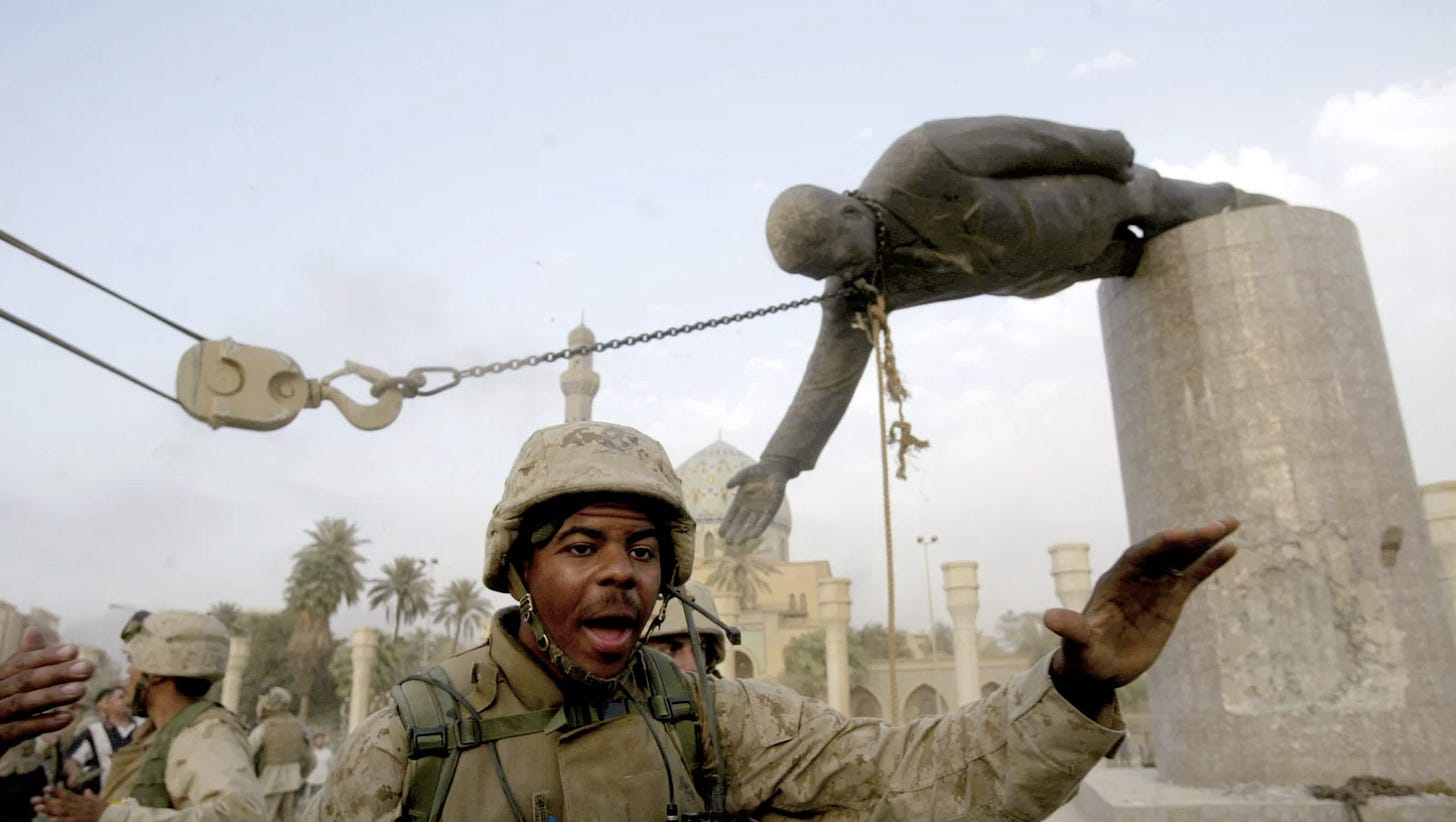
The Colourful Skyline
In March 2003, the U.S. invaded Iraq. This forced Nawras and Mustafa's family to flee Baghdad. The family had been trying to get international passports. They wanted to be able to leave the country if it became necessary. But March 2003 and the events of that month came too soon. They could not leave the country, but they could not remain in Baghdad either. Nawras mentioned that her father did not want to leave their home, but the Iraqi army advised him to do so. An American base had been stationed behind the house. They were warned it would be unwise to stay there. Moreover, being the capital, Baghdad was going to be targeted for the attacks. So, they moved around to different places. One of those places was in Baqubah, about thirty miles from Baghdad. They lived there for a couple of weeks. Nawras said a kind Iraqi-Palestinian man hosted them and took in many displaced families at that time.
Mustafa recalled, “we were about nine families in that farmhouse. The games made it fun for the kids, and we enjoyed staying up late into the night. Playing around with other children until 11 pm allowed me more freedom than I was used to. But the guy who owned the farm had a dad who was quite old. Noisy children from nine families making noise was not ideal for his necessary rest. I think that was why they started turning the lights off around 10 pm. It did not work; we were playing in the moonlight all the same." Their parents—like others who had fled from Baghdad—tried to find rays of stability and safety. But Mustafa remembers when they were at a relative’s home, which was not so far from an airport that got bombed. “The ground of the house was shaking; glasses collapsed. Everybody was holding each other to protect each other," Mustafa narrated. He also remembers that, when America invaded, people feared chemical weapons might be used. He explained, “our house had two floors. We had a room where my brother and I lived. We started putting up sheets and metal to isolate it from the rest of the house. We were not to allow any dust into the room. Our parents did great work to protect us. I don’t remember seeing my mom or dad scared. I don’t think they had time for that. They were busy looking for ways to protect us.’
Nawras, then a university student, felt the weight of the situation more acutely. "For the most part, the war sounded distant," she said, "but we could see it in the skyline. The bombs would light up the horizon like fireworks."
Some months after the invasion, Nawras resumed her studies. It came at a great emotional cost. Nawras said, "Life after the war was harder than life before the war." By 'the war', she meant the first set of invasions and bombs. Saddam Hussein had gone into hiding. Although universities resumed, the country had become unruly due to the absence of a government in power. Various violent sects had come into Iraq. Reports from archives at that time say leaving home was like rolling dice. There was a fair chance of not getting home safe. “There was a day when I got stuck for three or four hours on my way home from school. It would take 15 minutes on most occasions," Nawras recounts. “My parents tried to call me, but the signal was bad. It had been cut off.” By 2006, when Nawras was finishing up at the university, there was more fear. Young girls were being kidnapped and killed by rival sects. Some theories claimed it was due to their uncovered hair. At other times, there were other excuses for the violence. Nawras remembers some heated, sobering talks with her father. He did not support forcing women to cover their hair but he begged her to wear a headscarf he had bought. It would increase her chances of a safe return home.
When she finished her final exams in 2006, her family decided to go on a vacation to Syria. Mustafa says he does not remember the family going on any other real vacation. They were a family of five children, so short of staying overnight at an aunt or uncle’s house or taking long drives to see different places within a day, this was their first vacation. Their relatives in Europe were going to visit, and Syria was a safer place for them to meet. They learned of new violence and increased sectarian profiling while on vacation. People were stopped and asked if they were Shia or Sunni Muslims. This had never caused issues in Iraqi culture before. It had become a weapon in the hands of foreign extremists who were using loopholes created by the war to settle into the country. The family made a tough decision: the two people whose education would not be affected by a change of location would remain in Syria. In Mustafa’s words, “my parents were so particular about education. They didn't want me to lose any year. So they decided that my sister and I would stay back.”
In the years that followed, Nawras found a strength she never knew she had. It would shape both her and Mustafa's lives forever.
‘She was an overachiever. I was lazy’
Before starting their lives in Syria, their mother had arranged everything money could buy—a home, school for Mustafa, and enough funds to live decently. Nawras still vividly remembers the morning of the first school day. "I woke up and saw Mustafa still in bed. I was shocked. 'Mustafa, please wake up! You have to go to school!' It made me crazy," she recalls. Nawras, now a computer engineer, was always a high achiever, the type to cry over a 93% score. Her brother's laid-back attitude towards school was incomprehensible to her. It wasn't just school though—this contrast reflected their differing personalities.
"I was very organised. Everything had to be clean and arranged before I could study or work," Nawras explains. "Mustafa was the opposite. His socks were everywhere in our flat. Everywhere."
"It was hard for her," Mustafa reflects. "I wasn't an adventurous teenager, but I was lazy in school. She suffered with me during my final year. I needed private lessons, and I couldn't manage my time. She showed me how to be disciplined."
Tensions sometimes boiled over, and Mustafa recalls one argument. "She was cooking, and we were arguing because I wasn't helping with chores. I yelled at her, and she threw a pen at the wall, splitting it in half. Thank God it didn't hit me." Nawras laughs about this memory but adds, "I wasn't a traditional girl in Iraq. My older brother cleaned and washed dishes, sometimes even more than me. That's how our father raised us. So when Mustafa didn't help, it frustrated me."
They remember their parents' involvement differently. For Mustafa, he recalls how his mother gave him a talking to every now and again, but also how it was not always easy to reach them on the phone. It was hard to make calls. They needed to go to specific places to get good reception, and it was quite expensive to call another country. "My mom visited us every three to six months, carrying with her all the food that we loved, made with her hands. I remember that each time she came and we had to say goodbye, it was hard for me. We didn't know if we were going to see her again because the highway between Syria and Iraq was dangerous. There were thieves who would stop people and rob them. Sometimes, they would kill them. The male travellers were the most affected, but we were still scared for my mom."
Nawras, however, felt torn. "My mom wanted me to treat him as the baby of the family. But I was trying to instil discipline in him," she says. "My mom would scold me, 'this is your brother; you have to take care of him'". With each complaint to their parents, Nawras was being threatened with a return to Iraq. But for her, that wasn't a viable option. Iraq had become too dangerous for boys, who wouldn't stay indoors like girls. Sending Mustafa back simply wasn't an option. She was not particularly excited to go back either.
Nawras says that after some time it dawned on her that she had never seen a teenage boy grow up. "I was in my early twenties, trying to figure out a teenage boy's mind with no real model to follow," she admits. Their other brother was five years older than her, and she had always only looked up to him. She knew next to nothing about the troubles he got involved in, if any, or how their parents disciplined him. What she does remember is that he—being the first son of the house—got a more stern upbringing than the lastborn she was stuck with. To figure out how to live with and raise her brother to become a responsible person, Nawras says she turned to books and the advice of friends.
She had made friends in Syria, gotten a job, and built a healthy social circle around her. This circle became a safe place to seek advice on how to manage her brother. Books opened her up to both his world and her own challenges. After some time, she figured out a way to make things work, starting with the realisation that she was pretty much on her own as far as raising him was concerned. She accepted that although her parents provided financial support, the emotional burden was hers alone. She embraced the role.
Books and friends' advice became crucial tools for Nawras. They helped her with the unfamiliar task of raising Mustafa. They offered her insights into how to balance the strict discipline she valued with the warmth and patience he needed.
They both remember the night Nawras locked him out for coming home late. "In our family, no one stays out late—girls or boys. We had to be home by 10 p.m." Mustafa says. When he strolled in at 11, Nawras refused to open the door for another two or three hours. "When she opened the door, she warned me not to do it again. It was my last time acting like that," he continues. "There was once when I told her I was going to study, and she caught me with my girlfriend on the same bus. We were going to the same place. So I was hiding beside my girlfriend. Scared."
Nawras says the books she had read encouraged her to think about how to make herself and Mustafa as whole as possible. It is for such reasons that she pretended not to have seen him in the bus with this girlfriend that day. She had moved from focusing solely on school discipline to helping Mustafa build confidence. She enrolled both of them in a gym, realising that Syria offered opportunities that Iraq, torn by war, never could. "No one at war has time for healthy living," she says. The gym became part of their routine, a way to build both discipline and self-esteem.
"We built a system and routine that worked for us. We had the gym, school, work, and ourselves. With social lives, of course. Mustafa went from being the person who would not touch the toilet to the best toilet washer there is." Nawras says with a chuckle. But he was more than that, he had become her closest friend.
Mustafa's recollections are mostly uplifting and gleeful. Even his memories of war time are mostly about the way he played with his new friends and he speaks of his sister's strict methods with so much gratitude. Perhaps it is for that reason that his most difficult memory of the time he lived with his sister is all the more precious. He had come home and saw Nawras crying over a breakup and was desperate to make the pain go away. He tells it this way: "we had not had the conversation about it, but I knew what was happening. She was so hurt and I did not know what to do. I was fifteen. I knocked on our neighbours' door and told them that my sister was crying". Nawras remembers that experience as well. She had been in a relationship while they were in Iraq, and with her and the boyfriend moving to different countries, they had to break up. It was her first love lost, a painful one. She had buried herself under the weight of duty and now her first love in the sands of war. The only family member who experienced that with her was Mustafa. They experienced many more highs and lows together and walked through it as a team, as people who mostly had just each other.
Looking back, Mustafa realises the weight of the responsibility Nawras carried. "People didn't judge me; they judged her. They called her from work if I was late to school or if I misbehaved. She was the parent." He adds, "She taught me a lot—how to be disciplined, how to clean, and how to ask for help when I need it."
Being a Woman in Iraq | Being an Iraqi Man around the World
Five years after settling into their lives in Syria, the civil war broke out, forcing Nawras and Mustafa to return to Iraq. When we think of moving countries, we often focus on the struggle to plant new roots in unfamiliar places, but resettling in one's homeland brings its own set of challenges. Resettling after a war poses unique challenges; when that war has opened up the door to extremists impacting culture and lifestyle, it takes the ante some notches higher.
Nawras and Mustafa had left Iraq as children under their parents' care. At 22, even though Nawras was technically an adult, she had been shielded from many of the harsher realities of Iraqi society. Syria was a relatively open society, where single women could work, rent homes, and live independently without facing the constant scrutiny and constraints of a patriarchal culture. So returning to Iraq, which Nawras finds quite patriarchal, has posed quite a struggle.
The prevalent culture in Iraq considers it inappropriate for women—especially single women—to live alone. Nawras quickly realised that she couldn't even put herself forward as the person renting an apartment. To secure housing, she had to use her brother's name, as single women often face negative attitudes and struggle to navigate the social, cultural, and economic systems without the protection of a male relative. For her, it wasn't just a geographical shift; it has been like stepping into a guardianship as an adult.
Nawras shares that she has always been particular about freedom and autonomy as a woman. Her dreams have always involved work after her education. This was different from the norm for the average Iraqi girl. Many young women her age wanted to marry right after school. But Nawras wanted something more. She had grown up with ambitious parents and watched her mother build a career for herself. Her mother worked throughout their childhood. Nawras always wanted something similar, and she wanted to do life with the right person, not the available one. Having left home right out of school, she had an enabling society to live as she wished in Syria.
Upon their return to Iraq, Nawras found that she had to take a back seat. For six years, she had learnt to manage renting houses, bills, visas, permits, and repairs. She did that because she was the adult. Even when her brother became an adult too, there was no need to change. In Iraq, however, she was forced to give that up. At first, it was to Mustafa who had to step up to it to protect her. But with his absence, the other men in her family have assumed that space. These men do not know enough about who she has become after six years of navigating life as an adult woman. It is an adjustment she is still making, over ten years after they returned, and one she says she may never fully accept, nor does she want to.
Soon after settling in Erbil, Iraq, Mustafa left for Malaysia for his undergraduate studies. His journey has since taken him across Southeast Asia and Central Europe, but he carries the lessons he learned during those formative years with his sister. In this post-Saddam-Bush war era, there are various ways to speak on the effects of the war—broken systems, displaced families, lives lost, years of unrest, and more. But one of the measures that should dominate cultural conversations is the reputation that it has given the country and the burden that it places on the people who come from there. In one of the schools he attended, the name of which he chose to withhold, Mustafa shared an experience of a professor who seemed particularly irritated by his presence in the class. The lecturer made it clear that he was uncomfortable for fear that he could have a bomb strapped on. Mustafa's response? An A in that course. Committing to excellence is something he picked up when he lived with his sister, and as often as it serves him, he uses it. He made a point to mention that he also met beautiful people on his journey—like the American lecturers he met when he schooled in Iraq after their return. One of them made him learn English, and even if the professor has passed on, that seed they sowed came in handy for him when he moved to Malaysia.
This past summer, Mustafa hosted his entire family in Poland, where he now lives. For him, it was a dream come true, a reminder of how far he had come from that teenage boy who threw his socks around. For Nawras, it was a time of immense pride, seeing the man her brother had become and reflecting on the role she played in his journey. She was happy to spend time with the person who had seen her at her best and worst.
Nawras says her decision to return to Iraq is one she wishes she did not make. She looks forward to being in a society that allows women to hold more power and express themselves. I asked Mustafa about where home is for him. "Home…that's a big word. My roots will always be in Baghdad. It will never change. If you divide my heart in pieces, the right half would go to Baghdad, and the left half would go to Poland and Malaysia. And maybe it will be a lady someday."

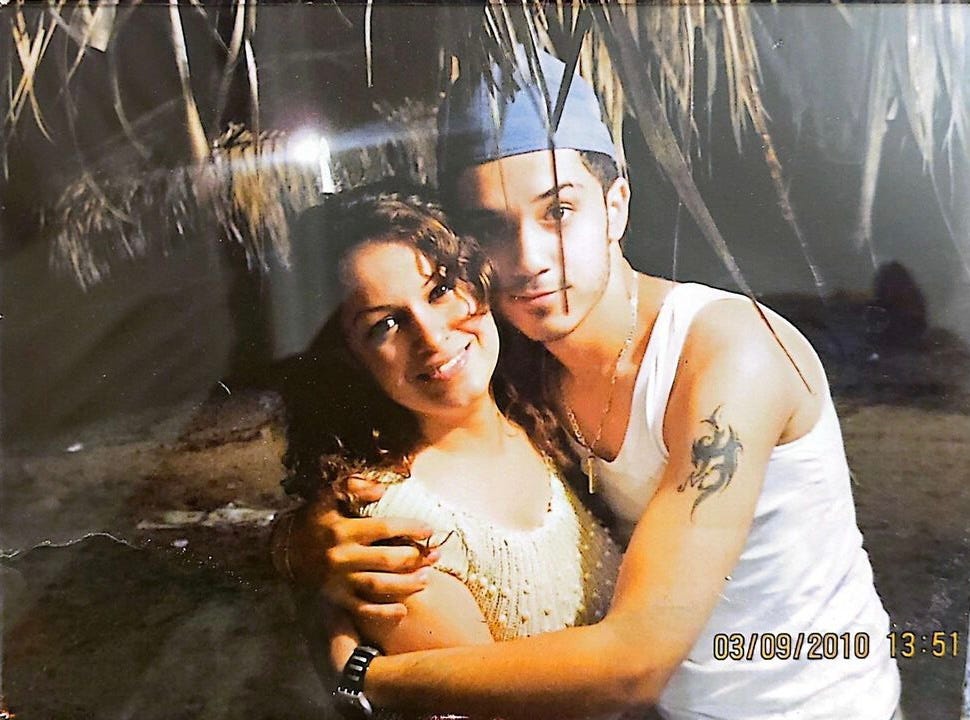
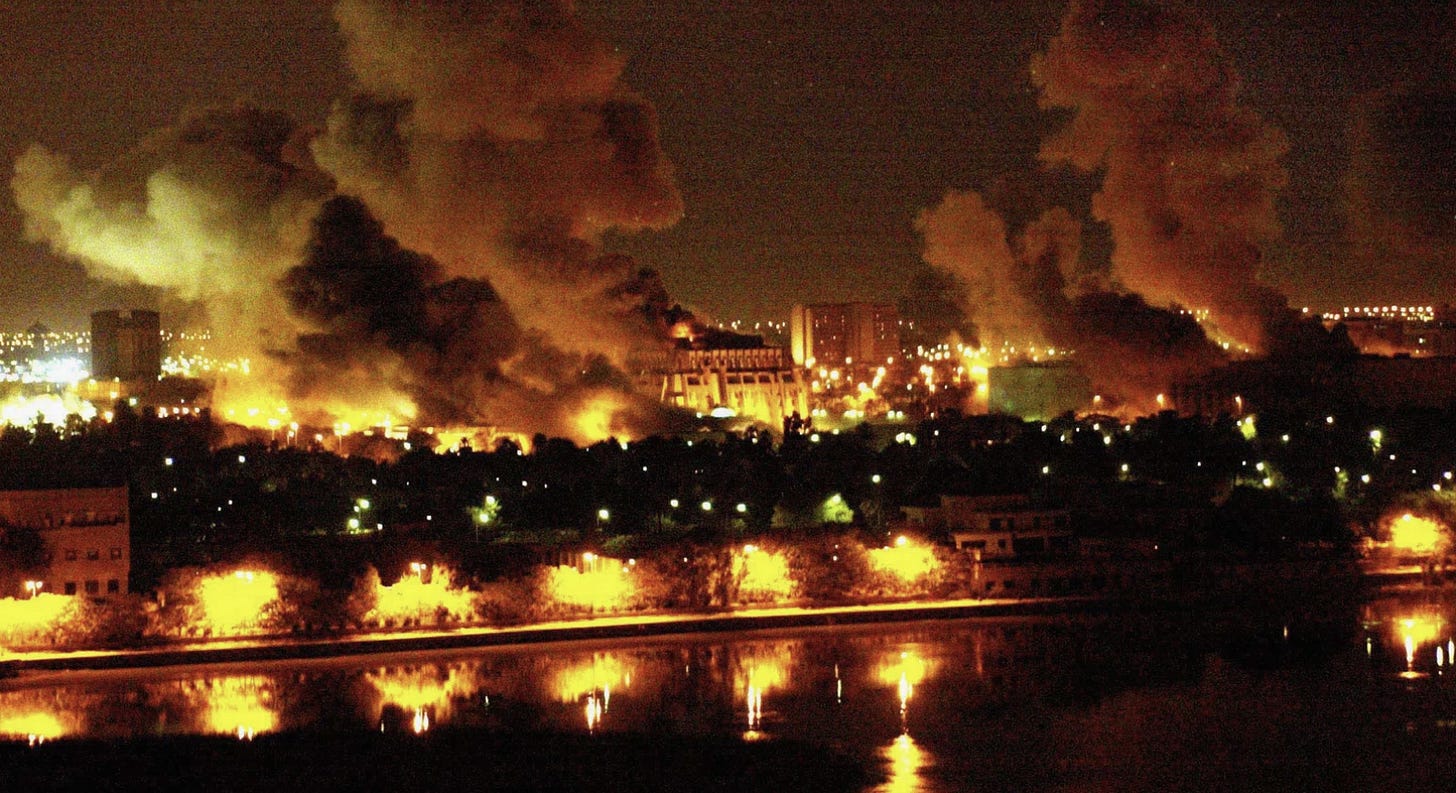
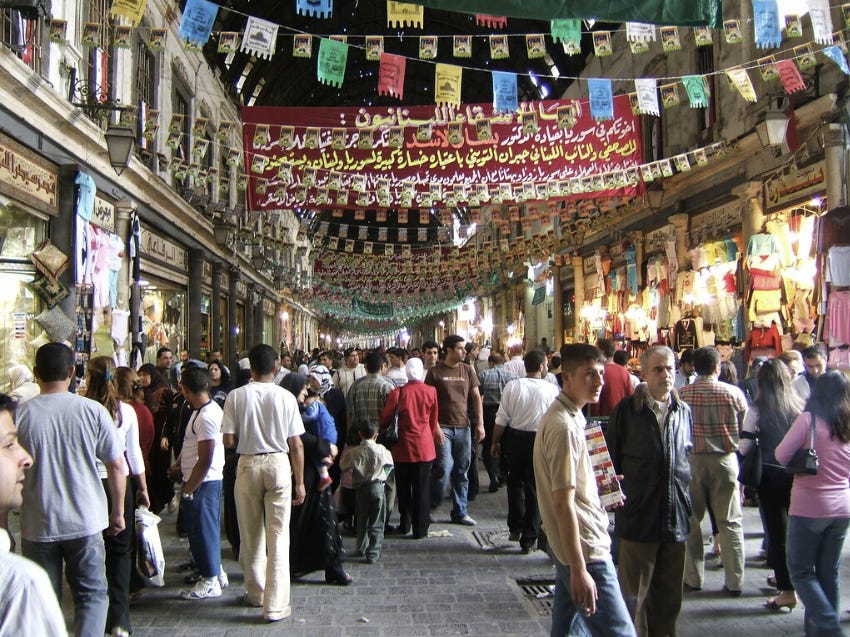

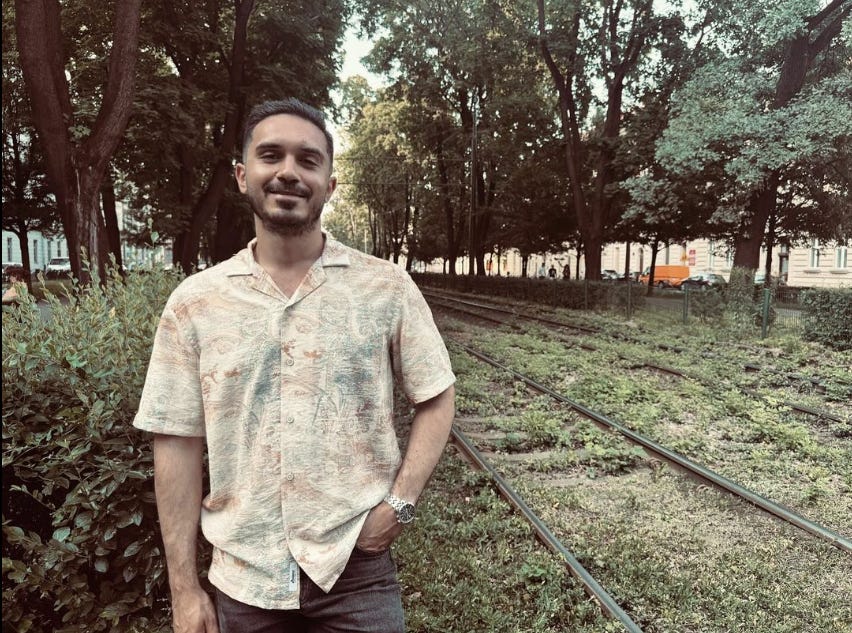
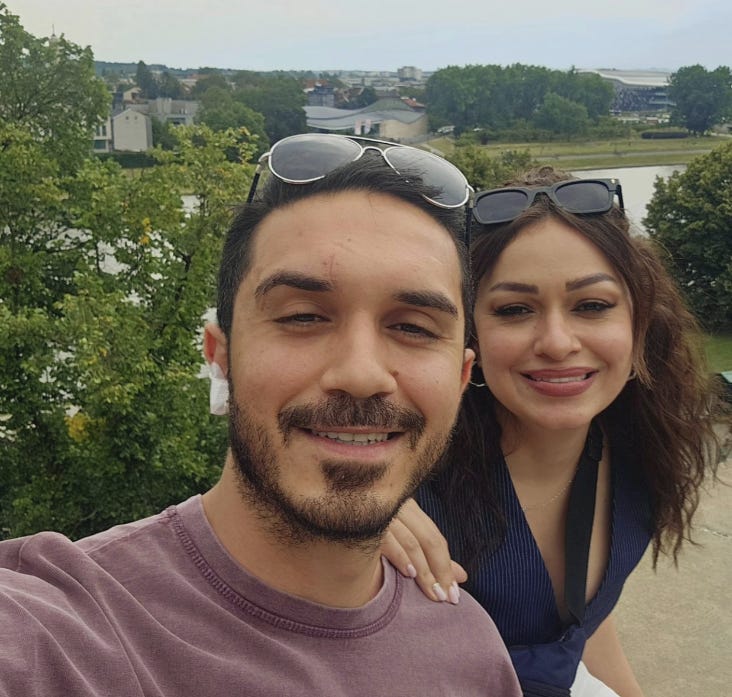
Such an inspiring story Mustafa. What an amazing sister and family. I had the pleasure of meeting you in person and you irradiated love, kindness and compassion. Maybe one day I will meet your sister and congratulate her on her warrior spirit and her super powerful strength. You are blessed ❤️
Inspiring story ❤️